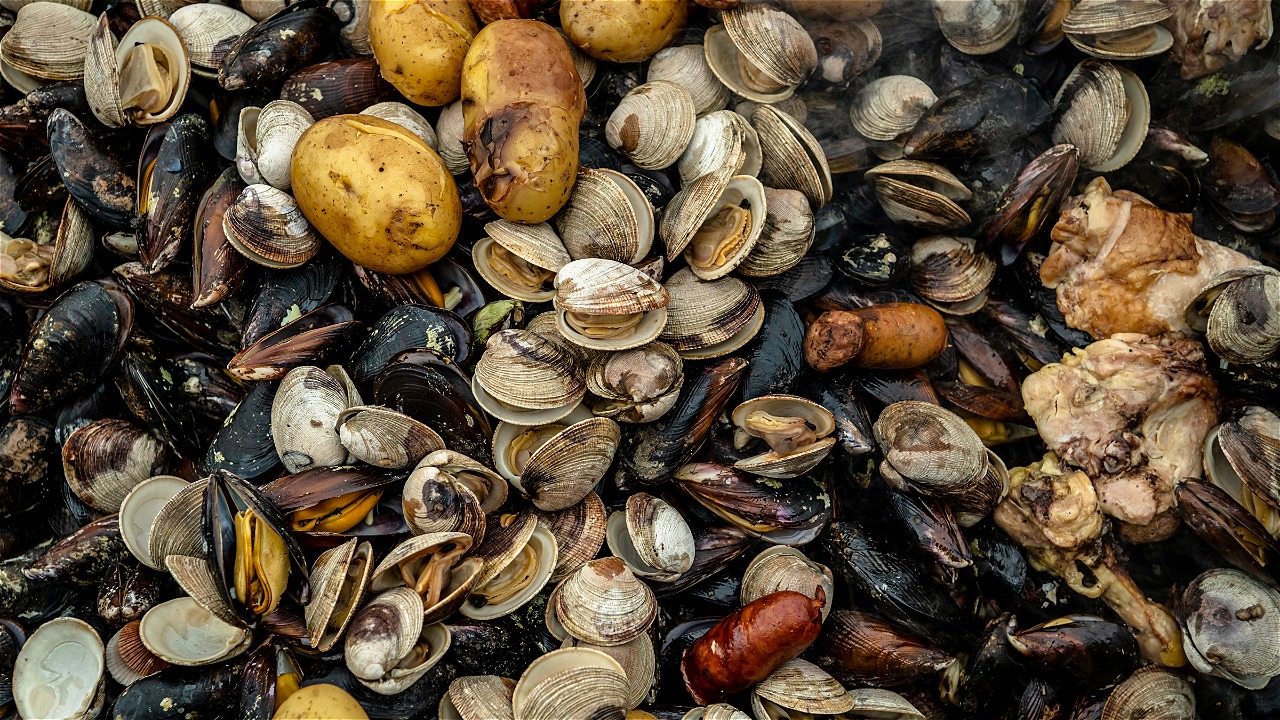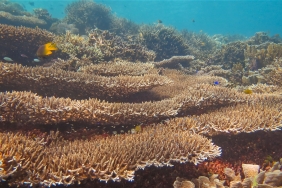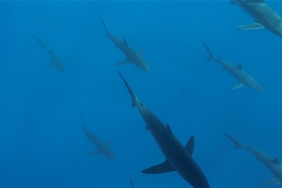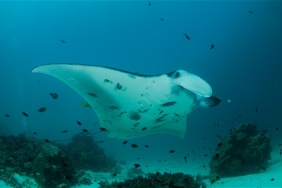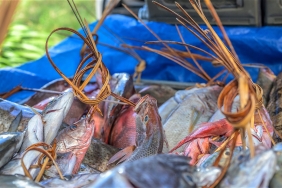INTRODUCTION OF HCR AND HISTORICAL CATCH AS THE DETERMINATION OF HARVEST STRATEGY IN THE MANAGEMENT OF SCALLOP FISHERIES IN SIDOARJO
By: Davidson Rato Nono (Capture Fisheries Officer WWF-Indonesia)
Shellfish is one of the fishery resources that is quite widely exploited and utilized by the people of Indonesia as a source of animal protein from the sea. Referring to statistical data from the Ministry of Marine Affairs and Fisheries in 2011, the average production volume of one type of shellfish, namely blood clams, has decreased by 2.05% from 2001 to 2011.
Currently, the number of fishermen utilizing clams is increasing due to the upward trend in market demand. If this condition is accompanied by the use of non-selective fishing gear that interferes with the productivity of clams, it will potentially lead to overfishing (Patrick et al, 2010). Therefore, there is a need for a regulatory model for sustainable scallop utilization, which is determined by the government as the management authority and agreed upon and implemented by all relevant stakeholders, including fisheries entrepreneurs and fishermen.
On March 12, the Indonesian Women's Coalition of East Java (KPI Jatim), in collaboration with WWF-Indonesia under the JARING-Nusantara scheme, held a workshop to introduce the Historical Catch data collection method and the Harvest Control Rules analysis method. The Historical Catch and Harvest Control Rules are used as the basis for determining the Harvest Strategy (Fisheries Utilization Strategy) in the Scallop Fisheries Management Plan in Sidoarjo District.
At the workshop "Introduction to Historical Catch Data Collection Methods and Harvest Control Rules Analysis as the Basis for Strategy Determination", the action plans needed to support better fisheries management were produced. For example, collecting catch or production data, conducting data analysis (Historical Catch and Harvest Control Rules), establishing a Harvest Strategy for scallop fisheries in East Java, especially in Sidoarjo Regency, and providing assistance and strengthening to scallop fishing groups in Sidoarjo.
Sustainable Management of Scallop Fisheries
The potential of mussels as a resource with a large amount of production is not well known by some parties. This is due to the lack or absence of valid information and data on scallop production. Thus, it is difficult to determine a better utilization strategy to maintain the sustainability of clam resources. This is particularly the case in East Java Province, where Sidoarjo Regency is one of the largest clam production centers in Indonesia.
The workshop, which was held in Sidoarjo, was attended by the Sidoarjo Regency Marine and Fisheries Office (DKP), Sidoarjo Regency Fisheries Extension Officers and the Ecosystem Approach To Fisheries Management (EAFM) Learning Center of Airlangga University Surabaya as well as representatives of the clam fishermen group of Banjar Kemuning Village, Sidoarjo Regency. The presence of these various parties has an important role to play in accelerating responsible and sustainable scallop fisheries management.
The follow-up of this workshop is that every management policy will be the authority of DKP Sidoarjo Regency. The role of Learning Center EAFM Universitas Airlangga is to analyze each data collected by fishermen to become the basis for determining the Harvest Strategy in the scallop fishery management plan. Meanwhile, the role of KPI East Java as the direct companion of this activity is to oversee every implementation of the action plan that has been agreed upon. The role of KPI East Java is in line with the scallop fishery improvement initiative that has been carried out since 2013 (read: JARING-Nusantara and Koalisi Perempuan Indonesia Assist the Improvement of Shellfish Fisheries in Surabaya)
The workshop was closed by Ms. Fesana Eradiaty, Head of the Marine Potential Management Section of DKP Sidoarjo, who conveyed that several programs from Sidoarjo District were in line with the results of this workshop. In addition, Ms. Fesana together with related fields in Sidoarjo District DKP are willing to cooperate and will submit the results of this workshop to the Head of Sidoarjo District DKP to then formally establish the division of roles and responsibilities and action plans that have been agreed upon in this activity.

